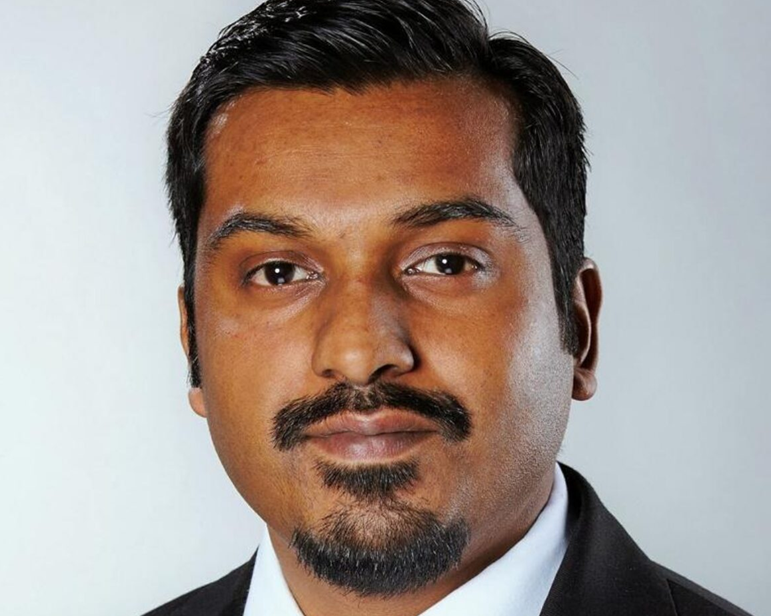
For many years, Daniel Raja has been a defining voice in German-Indian business relations – particularly within the SME sector. In this interview, he speaks candidly about his personal motivation to build intercultural bridges and reveals how closely his professional journey is intertwined with his own life story. Drawing strength and competence from his experience between two cultures, he guides companies strategically while embracing social responsibility. He calls for more trust, diversity in leadership, and courageous, values-driven partnerships between Germany and India – especially in an era of transformation and labour shortages. His message is clear: building bridges requires persistence, honesty, and a genuine will to grow together.
Daniel, what has personally motivated you to build bridges between Germany and India for so many years – especially within the SME sector?
Like many people with a migration background, I long asked myself: where do I truly belong? Which culture do I really identify with? At some point I realised: I do not fully belong to either side – and that is precisely my strength. I know both worlds well enough to connect them.
That insight has stayed with me ever since – both professionally and personally. My environment is deeply shaped by both German and Indian influences. My wife grew up in Mumbai, but we live in a small German town. My in-laws are based in Bangalore; my father’s family is from Tamil Nadu, my mother’s from Kerala. I founded my first company in Pune, and my closest friends and business partners are spread across both Germany and India.
Despite all the cultural and linguistic differences, our interactions work remarkably well – because we share similar values. Values like responsibility, reliability, helpfulness, and humility. I did not learn these values at home, but in my very first job – at a German SME where I began working at 18. I still keep in touch with the managing director from back then; I consider him my first mentor. From him, I learned what it truly means to internalise values and to live by them.
And I see these same values in many Indian companies. There is, therefore, a shared foundation that transcends cultural or linguistic barriers. Building and expanding this bridge between the German and Indian SME sectors is not a strategy for me – it is a personal passion, one I pursue every single day.
You advise small and medium-sized enterprises entering the Indian market. What opportunities do you see today, particularly in times of transformation, digitalisation, and labour shortages?
Market entry is only one aspect of my work. Today, I also support Indian companies expanding into Germany, advise business associations and government institutions on both sides, and participate in pilot projects that explore new models of Indo-German collaboration.
At a time when German companies are grappling with transformation, digitalisation, and demographic change, isolated thinking no longer suffices. We must recognise the full potential of the German-Indian partnership and create new cross-connections – between industries, regions, and mindsets.
We need more out-of-the-box approaches. Too many collaborations still fail due to linguistic, cultural, or organisational barriers, even though the opportunities are obvious. India brings technological competence, a young and ambitious generation, and entrepreneurial drive. Germany offers experience, industrial excellence, and a growing need for innovation, talent, and entrepreneurship – especially in the area of business succession.
In this constellation, I see enormous potential – far beyond what traditional market analyses capture. It is not just about new sales opportunities, supply chains, or IT outsourcing. It is about joint innovation projects, education partnerships, and business models built on trust and shared values.
If we succeed in building these connections strategically and bringing them to life, both countries can benefit immensely – economically and societally.
You are an advocate for civic engagement within the SME sector. Why is this so important to you, and what has personally shaped your sense of responsibility beyond your professional role?
I have been volunteering for over a decade – and today, civic engagement is more important than ever. Germany stands at a crossroads: demographic change demands that we become more open to immigration, yet society is becoming increasingly polarised. Many people with a migration background do not feel truly welcome – they withdraw into parallel structures or leave the country altogether.
This development affects me deeply. I grew up facing many challenges linked to my background. I want my children – and all children, regardless of origin – to grow up in a Germany where heritage is not a barrier but diversity is seen as a strength.
The SME sector feels these tensions too: companies must become more international – for geopolitical reasons, to counter the skills shortage, or to open up new markets. Yet often, there is a lack of cultural understanding or willingness to face these challenges head-on. I firmly believe: only through genuine dialogue and joint action – professionally and personally – can we build bridges. And this is precisely where civic engagement begins.
Volunteering is, to me, an active contribution to the long-term stability and sustainability of our society. Anyone who wants to shape their environment and that of the next generation positively should get involved – even if it requires time and offers no financial reward. We need more people who take responsibility: for community, for young people, and for social cohesion.
International cooperation does not thrive on contracts alone but on trust. How do you personally go about building lasting relationships – with entrepreneurs, institutions, and partners across two cultures?
Absolutely – contracts create structure, but trust is the foundation. Especially in the German-Indian context, trust is not a given; it is a process that requires time, patience, and genuine interest in the other. There is no universal formula – but there are guiding principles I follow.
Every partnership begins with realistic expectations. I always approach discussions with an “underpromise and overdeliver” mindset. It builds reliability – not through grand promises, but through consistent action. It took me years to internalise this principle and adapt it to different cultural contexts.
Transparency is another essential step. Expectations must not only be discussed but also documented – clearly, though without excessive bureaucracy. With partnerships we have built as an association – for example with EPPC India, nasscom, or FICCI – this was always our starting point: open communication, realistic goals, and small but concrete first steps.
I do not believe in launching twenty initiatives at once – I believe in the first shared success. It could be a small event, a workshop, or a pilot project. What matters is that both sides learn how the other works, where collaboration flows naturally – and where differences need to be bridged.
Trust grows not only through success, but through how we handle mistakes. That is why honesty is central to me – even when it means addressing uncomfortable issues. But intercultural sensitivity is key: what counts as direct communication in Germany might be perceived as hurtful in India – and vice versa.
Lasting relationships emerge when partners agree not just on what they do, but how they do it – as equals, with mutual respect and a shared willingness to grow together.
That said, success does not come overnight. Especially in the German-Indian context, perseverance is essential.
You advocate for young talent and promote diversity in leadership. What does leadership mean to you today – and what message would you share with the next generation?
Leadership today is far more than the ability to run a company. It is about acting as a catalyst, a mentor, and a person who takes responsibility. It also means developing a vision that extends beyond business success and includes social responsibility.
In an age marked by division and uncertainty, we need a new generation of leaders – those who can build bridges, inspire others, and see diversity not as a slogan but as a lived reality. People with migration backgrounds often bring precisely these strengths – because they have learned to understand and connect different perspectives.
That is why diversity in leadership is, to me, a cornerstone of success. Diverse perspectives and experiences lead to more innovative solutions – and that is what we need most today.
My message to the next generation is simple but profound: use your diversity as a strength. Be open to other perspectives – and listen. You have the opportunity to lead in an increasingly intercultural world. It is not about being perfect – it is about being authentic and taking responsibility.
Thank you for your time, Daniel.
Link: BVNW – Daniel Raja






